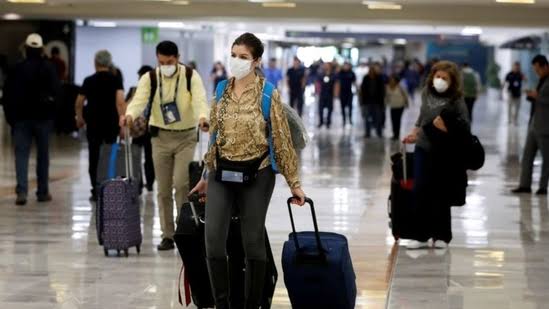Customs Officials at Tullamarine Airport should start liking Amul Cheese

India and Australia signed a Comprehensive Trade Agreement and have entered into an Economic Cooperation and Trade Agreement. It was signed last year, on 2nd April, 2022; after Ratification and Exchange of Written Instruments, the Agreement has come into force on 29th December 2022.
This agreement will build upon the historic ties and friendship already existing between the two countries. The ECTA will strengthen their economic relations further liberalize and expand bilateral trade and investments. This will lead to enhanced economic growth, create opportunities and promote substantial rise in living standards.
The CTA also requires the two sides to work together, protect, shape and strengthen the rule based, transparent non discriminatory and inclusive multilateral trading system embodied by the WTO.
This bilateral agreement is a Win Win situation for both India and Australia. It helps matters that Australia exports largely raw materials to India, while India exports finished goods. The ECTA builds on this complementarity, creating win-win opportunities for the two countries.
Here is what Additional Secretary, Department of Commerce and Industry, Rajesh Agrawal says: “The Department of Commerce has achieved the unique distinction of operationalizing two Trade Agreements this year – India UAE FTA and Ind – Aus ECTA.
The coming into force of Ind – Aus ECTA brings together two major economies of the world – India the 5th largest economy and Australia the 14th largest economy. Since the trade between the two countries is hugely complementary, this offers opportunities on both sides and will pave the way for a win-win solution for both India and Australia.”
So, what are these complementarities? Before we explore that, let us look at the current position of trade between the two countries, the before-position so to say, to understand how the picture will change in wake of the agreement.
Current trade trends between India and Australia.
India’s imports from Australia amount to 17 US $ billion while its exports to Australia amount to 10.5 US $ billion. However, what we need to realize that India’s imports from Australia are primarily (96%) raw materials & intermediate goods. They are highly concentrated in Coal (74% of Australia’s exports to India) out of which 71.4% is coking coal. On the other hand, India’s exports to Australia are broad-based and dominated by finished products (consumer goods). India also spends $ 4 bn approx. each year on education of students in Australia.
The above composition of our bilateral trade is very well reflected in the statements made by the Union Commerce and Industry Minister Piyush Goyal, during the event held in Mumbai on December 29, 2022, the day the agreement came into force.
“There is a lot of potential for exporting finished goods to Australia, since they hardly manufacture anything, they are largely a raw material and intermediate producing country, we will get cheaper raw materials which will not only make us more competitive globally but also enable us to serve Indian consumers better; enabling us to provide more quality goods at more affordable prices.”
“Australia, which is largely dependent on imports, will benefit hugely, they will soon start seeing a lot more finished goods coming in from India, providing huge amount of work and job opportunities in both goods and services, provided by Indian talent.”
An important aspect among other things for trades and goods will be to review the Customs Procedures and Trade Facilitation. Now recently a young Indian OCI carried two tins( 500gm each ) of his favourite processed Cheese of AMUL BRAND.
He had checked the existing regulations and even as per existing rules Cheese, butter, and other dairy products are permitted into Australia for personal use if the product is: commercially prepared and packaged produced in an approved FMD-free country (the product label must list the country of origin) imported in an amount up to 10 kilograms or 10 litres for human consumption only.
Cheese and other dairy products must be declared and inspected on arrival. Products that do not meet import conditions will be exported or destroyed at the importer’s expense.
The OCI had declared the Cheese tins. However in spite of all the above the Customs and Border Protection officials were not happy and took out the two Cheese tins, product of one of the best Brand of India which is as good as any International brand and meets all possible safety standards.
It is sufficient to say that for the ECTA to succeed mind sets have to change and all transactions have to be based on equality. Small things matter a lot. We Indians love Australian Cheese and Wine. So for a change Custom and Border Protection Authorities at Tulamarine, Melbourne International Airport should too start developing a taste for Indian AMUL CHEESE.. You cannot afford to confiscate and throw away India made tinned Cheese anymore.




